WiDS New Zealand, 10 and 17 March 2022
Confirmed Speakers

We have an exciting line up of speakers for WiDS New Zealand 2022! We thank all speakers for participating in the event.
Alice Qiao - Stats NZ

Alice leads the Data Ventures unit at Stats New Zealand. Her role varies from strategic relationships to operational excellence, making it easier for more New Zealanders to access and gain insights from data.
With a background in data management and analytics, Alice is a passionate and dedicated public servant who believes in helping others through the creative usage of data. She has many years of experience in the public and private sectors, having worked at the Ministry of Health, the Ministry of Education, Treasury, Public Trust, and the insurance industry before joining Data Ventures.
Alice has enjoyed the company of numbers since an early age. She joined the field following advice from her father, who also works in data and statistics, and has relished every moment since. Alice believes in people and the outcomes that can be delivered through implementing successful data/technology projects. She also gets joy from connecting and helping people, which she gets to do in her role at Data Ventures by helping others navigate data and the expertise found within Stats NZ.
In the weekends, you will most likely spot Alice at a dog park, making travel plans, or managing her life through spreadsheets...!
Antonia Burbidge - Climate Change Commission
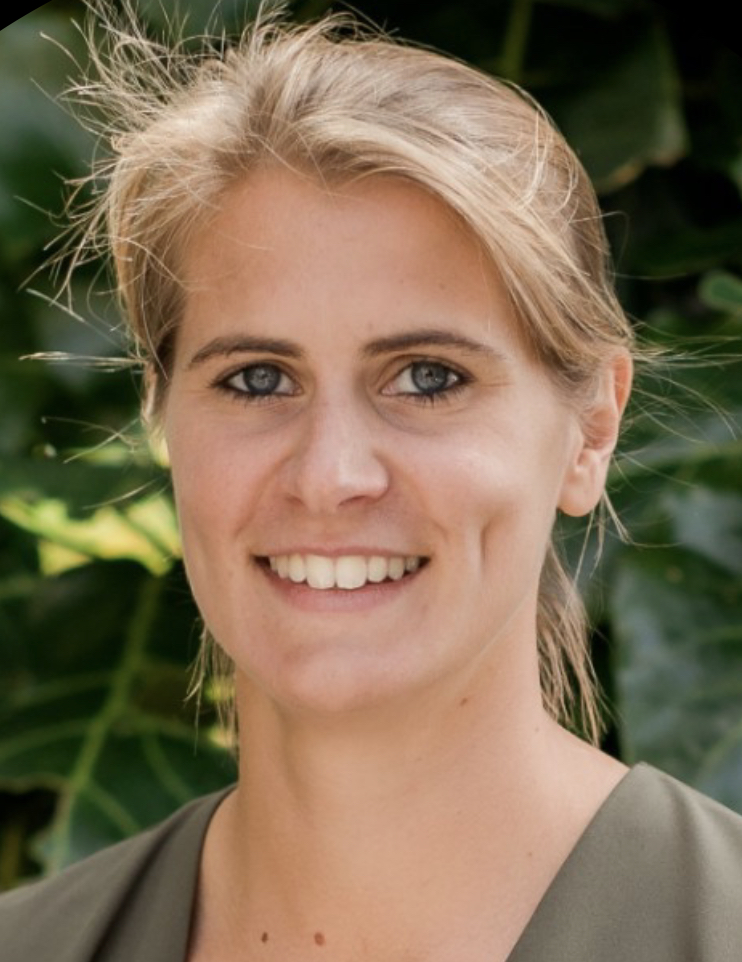
Antonia is the Manager of the Buildings, Industry, Transport and Energy team at the Climate Change Commission. She has experience working in government agencies in multiple jurisdictions on climate change and energy issues. Antonia is not a curator or producer of data, but is a very happy user.
Bing Xue - Victoria University of Wellington

Bing Xue is a Professor in Artificial Antelligence, Deputy Head of School in School of Engineering and Computer Science at Victoria University of Wellington (VUW), New Zealand. Her research areas are AI, machine learning and data science, focuses mainly on evolutionary computation, feature learning, automated deep neural network design, image analysis, and explainable/interpretable AI. She has over 300 papers published in fully refereed international journals and conferences and her research.
Bing co-leads the Evolutionary Computation Research Group at VUW, with > 15 staff and ~30 PhD students. She is a key organizer of many international conferences, including bringing top international conferences to New Zealand. She is also the Chair of the Evolutionary Computation Technical Committee at IEEE Computational Intelligence Society (CIS), Editor of IEEE CIS Newsletter, Associate Editor of 9 international journals, including IEEE Transactions on Evolutionary Computation and IEEE Transactions on Artificial Intelligence.
Dana Briscoe - Cawthron Institute

Dana is a Senior Data Scientist at the Cawthron Institute. Her research takes a computational approach to advance our understanding of complex biophysical processes in our natural environment. Her current focus applies artificial intelligence to ocean-related challenges, developing innovative, climate-ready marine conservation and management tools. She received her PhD in Oceanography from the University of California Santa Cruz and was a postdoctoral researcher at Stanford University.
https://www.linkedin.com/in/danakbriscoe/
Hannah Chorley - DOT Loves Data
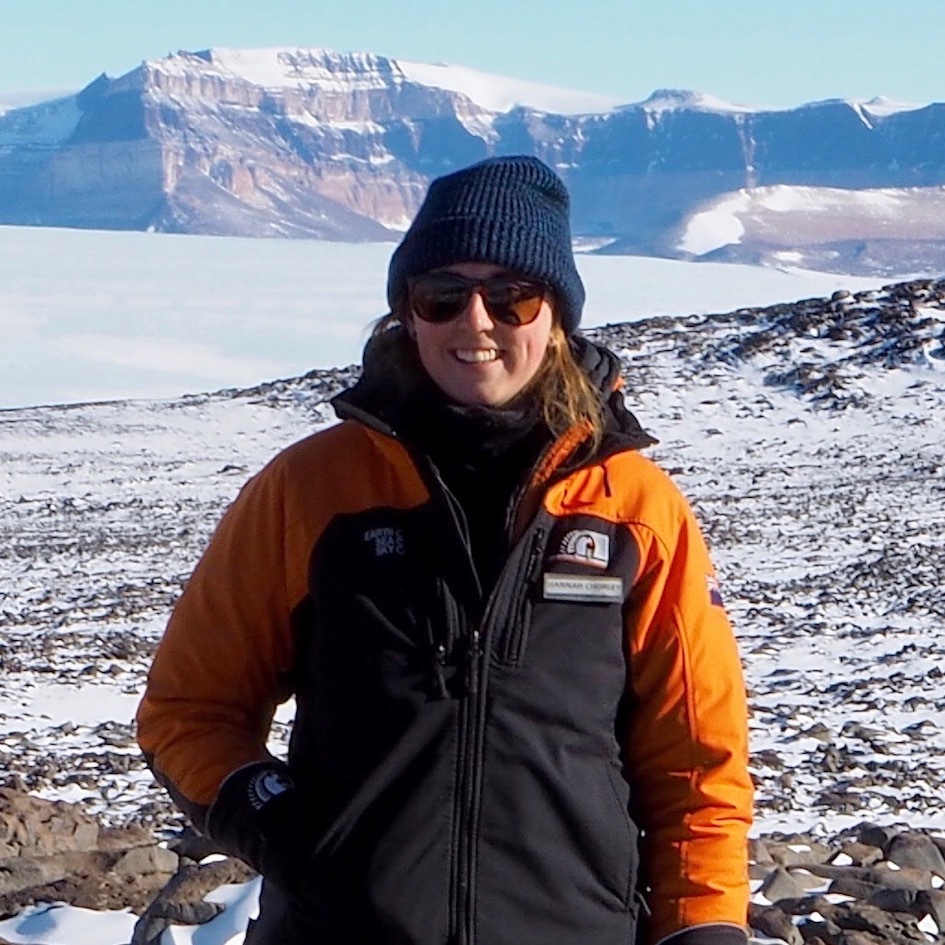
Hannah is DOT's Lead Environmental Researcher with experience in researching the relationship between past CO2 concentrations and ice sheet response to help understand the impact of future climate change. As part of the product team at DOT, Hannah has been involved in developing a trends-based approach to dynamically estimate national greenhouse gas emissions in New Zealand in advance of the national emissions inventory’s release, using daily estimates of annual emissions comparable to national emissions inventory and a daily index of emissions-related activity.
Ivy Liu - Victoria University of Wellington

Jacinta Fa'alilli-Fidow - Moana Research
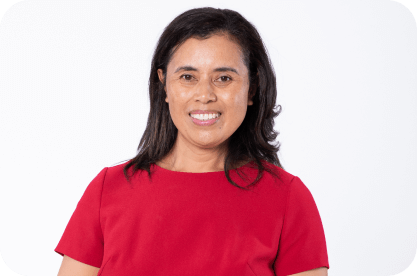
Jacinta has extensive leadership and management experience in health research, public health and Pacific wellbeing in New Zealand. Her work aims to bridge government, academia and Pacific communities to champion authentic positive change for Pacific. As the founding Managing Director of Moana Research, Jacinta empowers the importance of Pacific world-views, and the prominence of self-determination in all Moana Research work, including evaluation, research and advocacy.
Jacinta has worked for Pacific health provider WestFono, as Manager Pacific Health Research with the Health Research Council, and as Senior Advisor, Pacific for the Public Health Group in the Ministry of Health. After the Ministry of Health, Jacinta was shoulder tapped to manage TAHA Pacific Maternal and Child Health Service at the University of Auckland.
Having completed her Master of Public Health (Honours), Jacinta is undertaking a PhD at the Centre for Longitudinal Studies – Growing Up in New Zealand Study, investigating the concept of Resilience among Pacific families within the cohort.
Kate Kolich - Reserve Bank of New Zealand
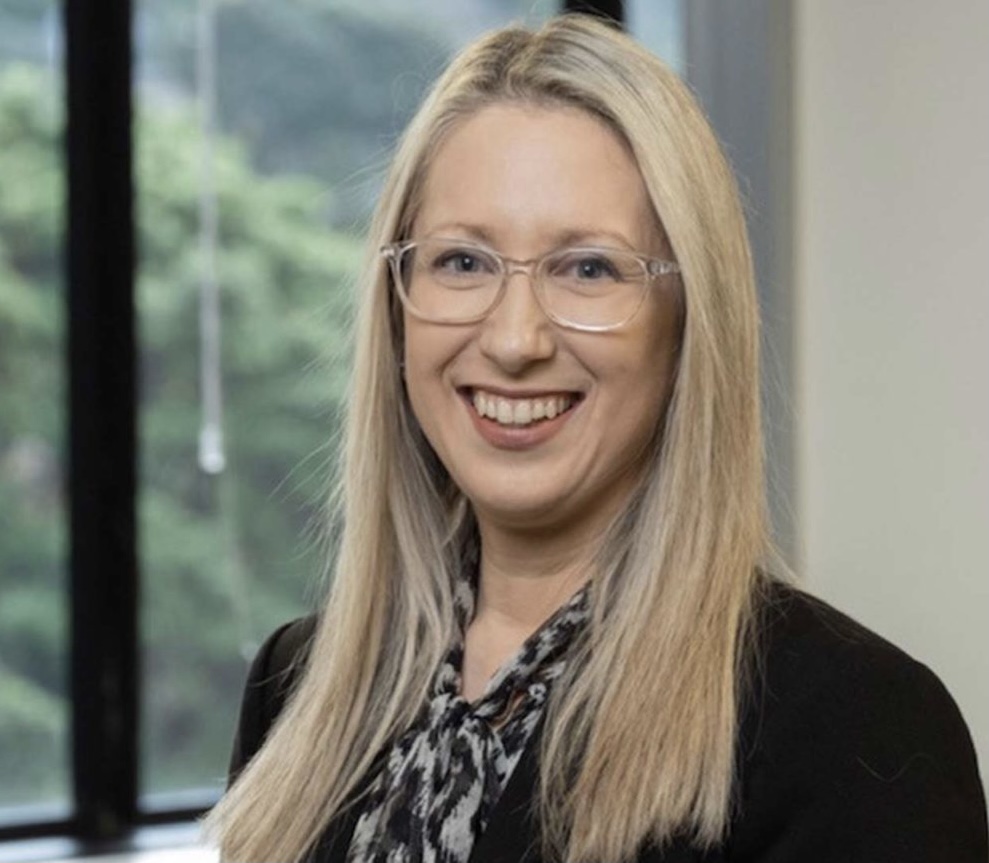
Kate Kolich will take up the role of Assistant Governor/General Manager of Information, Data, and Analytics in February 2022. In this role she is responsible for setting our information and data strategy, policy, developing processes for the collection, storage, manipulation, and dissemination of data to support evidence-based decision-making across the Bank.
Kate has an extensive career in digital, data and technology leadership roles across the public and private sectors. Her experience includes almost 20 years in financial services, including at the Bank of New Zealand where she held a number of data leadership roles including Head of Enterprise Data and Information Services. In her time at BNZ, Kate led many strategic data initiatives and teams across the bank. Prior to joining the RBNZ, Kate led the Evidence, Insights and Innovation team at EECA (Energy Efficiency and Conservation Authority). Prior to that, she was the Director of Data Systems and Analytics at the Social Wellbeing Agency.
As a recognised thought leader on digital and data innovation, Kate is active in promoting women in STEM through her work as a Global Women in Data Science Ambassador.
Kate has a Bachelor of Arts degree and a Master of Information Management in Information Systems from Victoria University of Wellington. She also holds an Executive Certificate in Strategy and Innovation from Massachusetts Institute of Technology Sloan School of Management.
Kath Large - Dragonfly Data Science
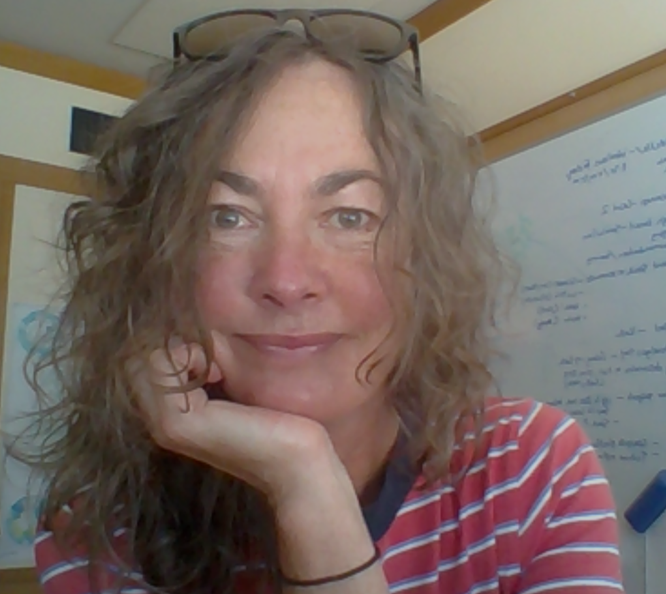
My name is Kath Large and, although I am 56 years old, I think I qualify as an early career scientist. I am not widely published. In fact, the one journal article that has my name on it was a collaborative effort by several authors, published several years ago. What I do write and contribute to are reports and documents related to fisheries assessments for fish stocks mainly around New Zealand, but also internationally. I have conributed to fisheries science and research since 2014, after qualifying with a Masters in Statistics from Victoria University of Wellington, New Zealand. I immediately went to work for the National Institute of Water and Atmospheric Research in their Fisheries Modelling team, and in February 2021 I joined Dragonfly Data Science to take up a similar fisheries science role.
Before that, my working life was eclectic: ranging from working in IT in the late 80s, medical statistics in the 90s, an undergraduate degree in Plant Science in the late 90s, a stint as a librarian, and then various jobs working as a farm labourer and in vineyards, to cooking in restaurants later in the 2000s. Tripping over fisheries science was a happy accident when I was looking into what I could do with a degree in Mathematics and Statistics - rather than PhD study. I needed a job, needed to earn some money. I wanted to do something interesting and useful. That's about as far as my thinking went - no grand plans. In a way it has taken me full circle. The messy-ness of the problems faced in fisheries reminds me of working in the health sector, where outcomes are influenced as much by economics and politics, as they are by science.
My work involves wrangling multiple large datasets to characterise various aspects of fisheries operations and species distributions, to estimate the trajectory of fish population sizes over time, and to predict how populations of marine species might be affected by things like climate change and sustained or increased harvesting. Most of the time I'm working at a computer, coding or writing. I have also been on research voyages surveying fisheries in the South Pacific and Southern Ocean, and as far south as the Ross Sea. I have worked as the technical lead in the development of fisheries asssesment software, and participated in national and international fisheries assessment fora.
Besides the technical aspects of my job, getting wonderfully engrossed for hours at a time in a screenful of code, talking with fishers about how they go about their job, or working with biologists and ecologists to learn about the animals I am trying to count and the environment within which they live - more and more I am interested in the industry of science. How does this thing we do fit together, why does it work better sometimes and not others, how can the answers seem even further from our grasp the more we research, and the more data we collect? I will talk about my experience working within large and small science organisations where my work is applied rather than academic. In the end, for me, it is about the relationships we have with each other which determines the application of science for the betterment of our world. And, it is about how well we provide an equitable environment within which all people feel safe and welcome to contribute, and are rewared equally and fairly for their endeavours.
Kennie Tsui - Geothermal NZ
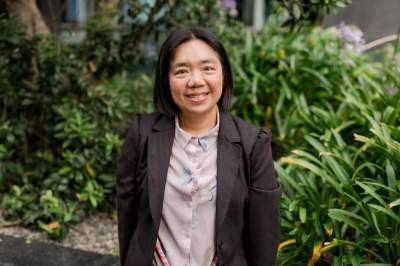
Kennie Tsui joined the New Zealand Geothermal Association as Chief Executive Officer in July 2021. Prior to this, she was the Principal Analyst at the Climate Change Commission, and was heavily involved with developing the recent report “Ināia tonu nei: a low emissions future for Aotearoa”. Tabled in Parliament in June, this report provided recommendations to the Government on climate change action in New Zealand. She has also held previous positions at the Ministry for Business, Innovation and Employment. A chemical and process engineer by training, and also holding an MBA qualification, Kennie has a wealth of knowledge across the energy sector built during her professional roles and directorships, as well as strong working relationships with central government. She is based in Wellington, New Zealand.
Kirikowhai Mikaere - Te Wehi
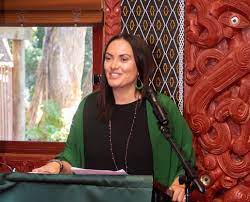
Kirikowhai Mikaere (Tuhourangi, Ngati Whakaue) is a leading Māori data and information specialist focused on harnessing information to empower iwi, hapū, whānau and community development. A consultant with over 15 years of experience advising Ministers, government agencies, tribal, community and private sector organisations with practical statistical analysis and innovative place-based data solutions.
With a bi-cultural education and upbringing, intensive technical training, and hands-on experience with diverse communities, Kirikowhai brings a unique perspective to development opportunities. She is currently a technical advisor to the Iwi (Tribal) Chairs Forum - Data Leadership Group, a Future Director of the State Sector on the Te Mangai Paho Board and deputy chair of the Māori Hauora provider Manaaki Ora Trust.
Kylie Reiri - PwC

Marianna Pekar - MartinJenkins

Marianna Pekar is the Chief Data Scientist at MartinJenkins, a consulting firm specialising in giving expert advice mainly to government and public sector agencies in New Zealand. Until recently she worked as a Principal Data Scientist at a government research organisation called the Social Wellbeing Agency; there she focused on social issues facing New Zealanders, applying an innovative, data-driven approach using linked microdata of individuals and households. Before that she worked at KPMG and was responsible for business development at the inception of KPMG Lighthouse, Center of Excellence for data-driven technology. In her current role at MartinJenkins, Marianna is once again responsible for building a data science team and leading a data-driven transformation of the organization.
Nalei Taufa - Moana Research
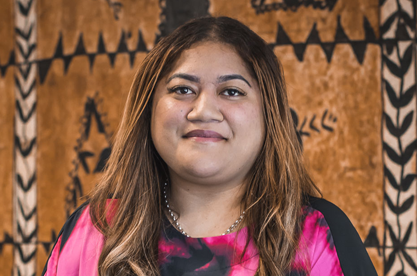
Nalei Taufa is a senior researcher at Moana Research. Her current projects are exploring Whānau and Stakeholder experiences of engaging Oranga Tamariki. Further, Nalei is involved in Pacific Data Sovereignty Network, whereby Moana Research are the secretariat.
She previously worked at the Auckland Regional Public Health Service following her Masters of Public Health, before becoming research lead at Le Vā. Nalei joined our Moana Research in 2020.
Nalei has studied for a Bachelor of Health Science, Postgraduate diploma in Public Health (specialising in Pacific Health), Masters of Public Health (Hons), Graduate diploma in Applied theology, Honours degree in Science (majoring in Psychology) (Hons) and she is completing a Masters of Science (majoring in Psychology). She hopes to progress to doctoral studies and is exploring the area of loss and grief. Her dissertations and theses previously have focused on Kava consumption within the Tongan community, Pacific experiences of homelessness, and Tongan experiences of distress and resiliency.
She is passionate about Pacific health equity, storytelling through tālanoa, and advocating for Pacific health and wellbeing gains through the modalities of research, evaluation, and media analysis.
Nikki Wilkinson - Dragonfly Data Science
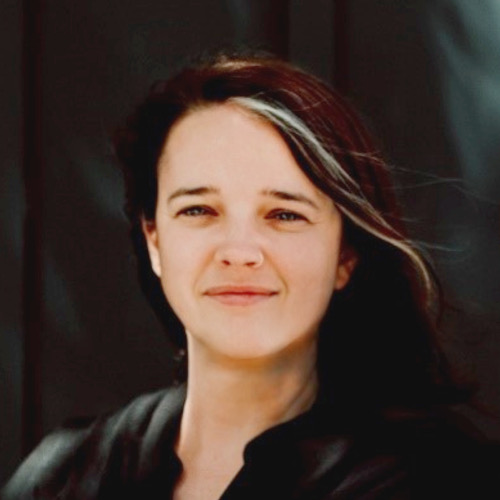
Nikki is a data scientist at Dragonfly Data Science – she has a strong interest in machine learning and artificial intelligence.
Once she completed a Bachelor of Science degree in mathematics and statistics (including a minor in data science) from Victoria University of Wellington, she completed an Honours degree in Statistics.
Alongside her work at Dragonfly Data Science, Nikki is currently working on her PhD at Victoria University. She is exploring machine learning approaches to risk modelling via a cross-sectoral social investment approach. Her research includes applications in epidemiological and intervention studies.
Nikki believes that considering security and ethics when managing data is becoming more and more important.
Nokuthaba Sibanda - Victoria University of Wellington, NZSA
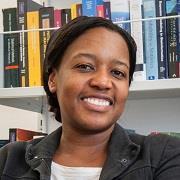
Nokuthaba is a Senior Lecturer in Statistics and Associate Dean (Postgraduate Research) at Victoria University of Wellington. She also serves as Secretary of the New Zealand Statistical Association.
Ocean Mercier - Victoria University of Wellington
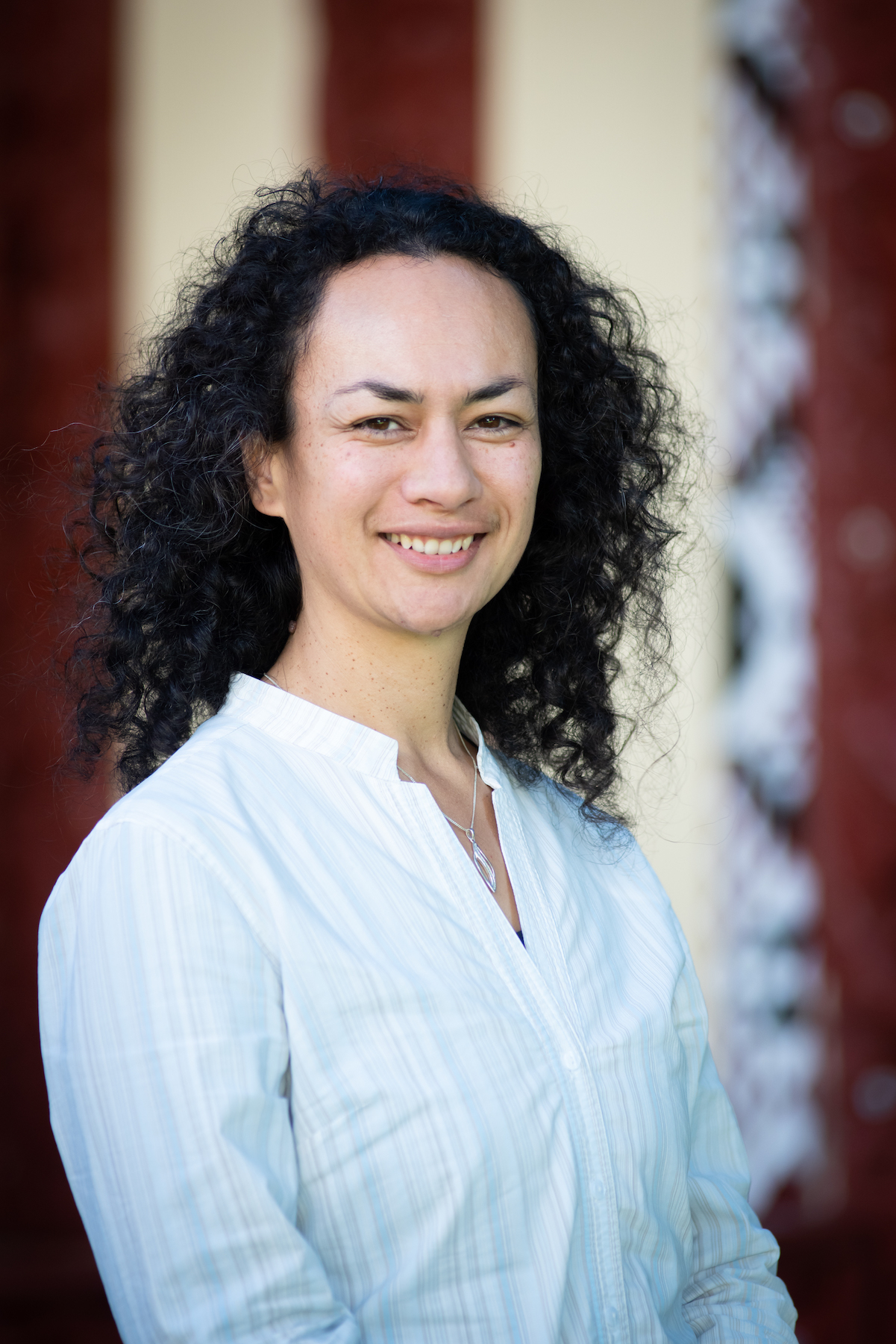
Ocean Ripeka Mercier (Ngāti Porou) is Head of School of Te Kawa a Māui (the School of Māori Studies) at Victoria University of Wellington, Aotearoa New Zealand. Her teaching and research examine how mātauranga Māori (Indigenous Māori knowledge) and science can be applied together for better environmental outcomes.
Rachael Milicich - Stats NZ
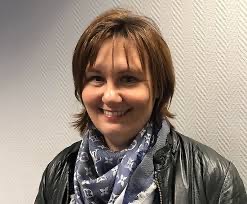
Unlocking the value of data and statistics is something that Rachael has been passionate about throughout her varied career at Stats NZ. Rachael is the current Deputy Chief Executive (DCE) and Deputy Government Statistician (DGS) of the Insights and Statistics group. Here she is responsible for providing reliable and relevant insights and statistics on New Zealand’s economy, population, society, and environment, working with a range of customers, data suppliers and stakeholders in the data system. Prior to this Rachael was General Manager System and Partnerships within the Data System Leadership group. This group gives effect to the role of the Government Chief Data Steward (GCDS) and focusses on building public trust and confidence in the New Zealand data system and empowering government agencies to use data more effectively.
Internationally Rachael has represented New Zealand in the international statistical community. Highlights include chairing the Friends of the Chair Group on the Fundamental Principles for Official Statistics and Open Data (on behalf of the United Nations Statistical Commission), and contributing to the measurement of sustainable development as part of the UNECE/OECD and Eurostat Taskforce on Statistics for Sustainable Development. She is also a member of the New Zealand AI Forum Executive Council and has chaired the cross-government Information Group as part of the New Zealand Digital Government Partnership.
As a full-time working mother Rachael has had to juggle career and family life whilst growing into being a senior public service leader. She is a keen supporter of others in their career journeys and is a keen sponsor of Stats NZ’s Women’s Network | Te Aka Wāhine.
Renate Meyer - University of Auckland
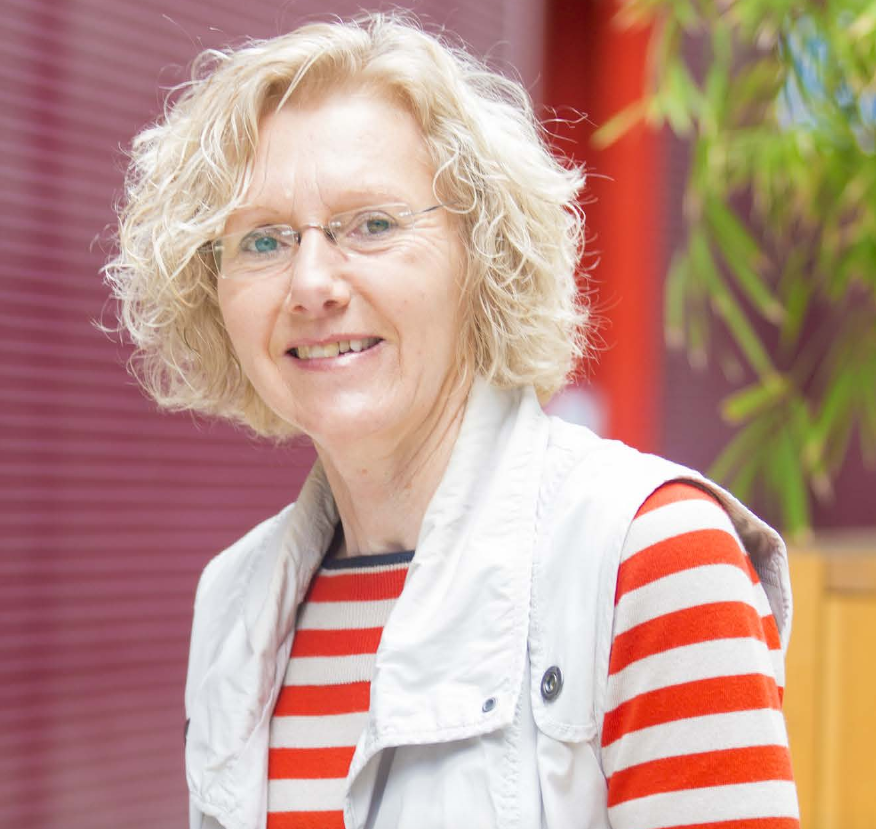
Renate is Professor of Statistics at the University of Auckland. After obtaining an MSc and PhD in Mathematics and Statistics from the University of Aachen, Germany, she took up a lectureship at the University of Auckland in 1994. In 2010, 2017, and 2018, she held visiting professorships at the Karlsruhe Institute of Technology, the Otto-von-Guericke University Magdeburg in Germany, and the Observatoire de la Côte d’Azur in France. She was awarded a James Cook Research Fellowship by the Royal Society of NZ in 2018 for research on noise characterization studies for laser-interferometric gravitational wave observatories and the Littlejohn Research Award of the NZ Statistical Society in 2020.
Renate has wide research interests in applied Bayesian inference and MCMC methods. She has been collaborating for many years with astrophysicists on the analysis of gravitational wave data. Her research areas comprise time series analysis with applications in astrophysics, state-space modelling in ecology, multivariate modelling using copulas, survival analysis in medical statistics, and stochastic volatility models for financial time series.
Renate is associate editor for Journal of Statistical Computation and Simulation, chair of the NZ Astrostatistics and General Relativity Group, and a member of the ESA-led international LISA Consortium. In 2021 she was granted a Marsden Fund Council Award by the Royal Society Te Apārangi to lead a multi-institutional NZ team that will make core contributions to gravitational wave science and facilitate participation of Aotearoa New Zealand scientists in the international LISA mission.
Silvina Pugliese - Energy Efficiency and Conservation Authority
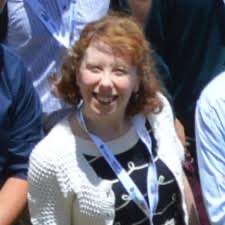
Silvina is a data scientist at EECA where she focuses on energy system modelling and developing data-driven insights to improve business performance and address impacts of climate change. Silvina is also passionate about developing effective data visualisation tools to communicate findings to both technical and non-technical audiences. Silvina has a background in chemical engineering and physics and is alumni of the Marie Curie Actions Research programme. Silvina completed her PhD in physics at Victoria University of Wellington.
 We have an exciting line up of speakers for WiDS New Zealand 2022! We thank all speakers for participating in the event.
We have an exciting line up of speakers for WiDS New Zealand 2022! We thank all speakers for participating in the event.
 Alice leads the Data Ventures unit at Stats New Zealand. Her role varies from strategic relationships to operational excellence, making it easier for more New Zealanders to access and gain insights from data.
With a background in data management and analytics, Alice is a passionate and dedicated public servant who believes in helping others through the creative usage of data. She has many years of experience in the public and private sectors, having worked at the Ministry of Health, the Ministry of Education, Treasury, Public Trust, and the insurance industry before joining Data Ventures.
Alice has enjoyed the company of numbers since an early age. She joined the field following advice from her father, who also works in data and statistics, and has relished every moment since. Alice believes in people and the outcomes that can be delivered through implementing successful data/technology projects. She also gets joy from connecting and helping people, which she gets to do in her role at Data Ventures by helping others navigate data and the expertise found within Stats NZ.
In the weekends, you will most likely spot Alice at a dog park, making travel plans, or managing her life through spreadsheets...!
Alice leads the Data Ventures unit at Stats New Zealand. Her role varies from strategic relationships to operational excellence, making it easier for more New Zealanders to access and gain insights from data.
With a background in data management and analytics, Alice is a passionate and dedicated public servant who believes in helping others through the creative usage of data. She has many years of experience in the public and private sectors, having worked at the Ministry of Health, the Ministry of Education, Treasury, Public Trust, and the insurance industry before joining Data Ventures.
Alice has enjoyed the company of numbers since an early age. She joined the field following advice from her father, who also works in data and statistics, and has relished every moment since. Alice believes in people and the outcomes that can be delivered through implementing successful data/technology projects. She also gets joy from connecting and helping people, which she gets to do in her role at Data Ventures by helping others navigate data and the expertise found within Stats NZ.
In the weekends, you will most likely spot Alice at a dog park, making travel plans, or managing her life through spreadsheets...!
 Antonia is the Manager of the Buildings, Industry, Transport and Energy team at the Climate Change Commission. She has experience working in government agencies in multiple jurisdictions on climate change and energy issues. Antonia is not a curator or producer of data, but is a very happy user.
Antonia is the Manager of the Buildings, Industry, Transport and Energy team at the Climate Change Commission. She has experience working in government agencies in multiple jurisdictions on climate change and energy issues. Antonia is not a curator or producer of data, but is a very happy user.
 Bing Xue is a Professor in Artificial Antelligence, Deputy Head of School in School of Engineering and Computer Science at Victoria University of Wellington (VUW), New Zealand. Her research areas are AI, machine learning and data science, focuses mainly on evolutionary computation, feature learning, automated deep neural network design, image analysis, and explainable/interpretable AI. She has over 300 papers published in fully refereed international journals and conferences and her research.
Bing co-leads the Evolutionary Computation Research Group at VUW, with > 15 staff and ~30 PhD students. She is a key organizer of many international conferences, including bringing top international conferences to New Zealand. She is also the Chair of the Evolutionary Computation Technical Committee at IEEE Computational Intelligence Society (CIS), Editor of IEEE CIS Newsletter, Associate Editor of 9 international journals, including IEEE Transactions on Evolutionary Computation and IEEE Transactions on Artificial Intelligence.
Bing Xue is a Professor in Artificial Antelligence, Deputy Head of School in School of Engineering and Computer Science at Victoria University of Wellington (VUW), New Zealand. Her research areas are AI, machine learning and data science, focuses mainly on evolutionary computation, feature learning, automated deep neural network design, image analysis, and explainable/interpretable AI. She has over 300 papers published in fully refereed international journals and conferences and her research.
Bing co-leads the Evolutionary Computation Research Group at VUW, with > 15 staff and ~30 PhD students. She is a key organizer of many international conferences, including bringing top international conferences to New Zealand. She is also the Chair of the Evolutionary Computation Technical Committee at IEEE Computational Intelligence Society (CIS), Editor of IEEE CIS Newsletter, Associate Editor of 9 international journals, including IEEE Transactions on Evolutionary Computation and IEEE Transactions on Artificial Intelligence.
 Dana is a Senior Data Scientist at the Cawthron Institute. Her research takes a computational approach to advance our understanding of complex biophysical processes in our natural environment. Her current focus applies artificial intelligence to ocean-related challenges, developing innovative, climate-ready marine conservation and management tools. She received her PhD in Oceanography from the University of California Santa Cruz and was a postdoctoral researcher at Stanford University.
https://www.linkedin.com/in/danakbriscoe/
Dana is a Senior Data Scientist at the Cawthron Institute. Her research takes a computational approach to advance our understanding of complex biophysical processes in our natural environment. Her current focus applies artificial intelligence to ocean-related challenges, developing innovative, climate-ready marine conservation and management tools. She received her PhD in Oceanography from the University of California Santa Cruz and was a postdoctoral researcher at Stanford University.
https://www.linkedin.com/in/danakbriscoe/
 Hannah is DOT's Lead Environmental Researcher with experience in researching the relationship between past CO2 concentrations and ice sheet response to help understand the impact of future climate change. As part of the product team at DOT, Hannah has been involved in developing a trends-based approach to dynamically estimate national greenhouse gas emissions in New Zealand in advance of the national emissions inventory’s release, using daily estimates of annual emissions comparable to national emissions inventory and a daily index of emissions-related activity.
Hannah is DOT's Lead Environmental Researcher with experience in researching the relationship between past CO2 concentrations and ice sheet response to help understand the impact of future climate change. As part of the product team at DOT, Hannah has been involved in developing a trends-based approach to dynamically estimate national greenhouse gas emissions in New Zealand in advance of the national emissions inventory’s release, using daily estimates of annual emissions comparable to national emissions inventory and a daily index of emissions-related activity.

 Jacinta has extensive leadership and management experience in health research, public health and Pacific wellbeing in New Zealand. Her work aims to bridge government, academia and Pacific communities to champion authentic positive change for Pacific. As the founding Managing Director of Moana Research, Jacinta empowers the importance of Pacific world-views, and the prominence of self-determination in all Moana Research work, including evaluation, research and advocacy.
Jacinta has worked for Pacific health provider WestFono, as Manager Pacific Health Research with the Health Research Council, and as Senior Advisor, Pacific for the Public Health Group in the Ministry of Health. After the Ministry of Health, Jacinta was shoulder tapped to manage TAHA Pacific Maternal and Child Health Service at the University of Auckland.
Having completed her Master of Public Health (Honours), Jacinta is undertaking a PhD at the Centre for Longitudinal Studies – Growing Up in New Zealand Study, investigating the concept of Resilience among Pacific families within the cohort.
Jacinta has extensive leadership and management experience in health research, public health and Pacific wellbeing in New Zealand. Her work aims to bridge government, academia and Pacific communities to champion authentic positive change for Pacific. As the founding Managing Director of Moana Research, Jacinta empowers the importance of Pacific world-views, and the prominence of self-determination in all Moana Research work, including evaluation, research and advocacy.
Jacinta has worked for Pacific health provider WestFono, as Manager Pacific Health Research with the Health Research Council, and as Senior Advisor, Pacific for the Public Health Group in the Ministry of Health. After the Ministry of Health, Jacinta was shoulder tapped to manage TAHA Pacific Maternal and Child Health Service at the University of Auckland.
Having completed her Master of Public Health (Honours), Jacinta is undertaking a PhD at the Centre for Longitudinal Studies – Growing Up in New Zealand Study, investigating the concept of Resilience among Pacific families within the cohort.
 My name is Kath Large and, although I am 56 years old, I think I qualify as an early career scientist. I am not widely published. In fact, the one journal article that has my name on it was a collaborative effort by several authors, published several years ago. What I do write and contribute to are reports and documents related to fisheries assessments for fish stocks mainly around New Zealand, but also internationally. I have conributed to fisheries science and research since 2014, after qualifying with a Masters in Statistics from Victoria University of Wellington, New Zealand. I immediately went to work for the National Institute of Water and Atmospheric Research in their Fisheries Modelling team, and in February 2021 I joined Dragonfly Data Science to take up a similar fisheries science role.
Before that, my working life was eclectic: ranging from working in IT in the late 80s, medical statistics in the 90s, an undergraduate degree in Plant Science in the late 90s, a stint as a librarian, and then various jobs working as a farm labourer and in vineyards, to cooking in restaurants later in the 2000s. Tripping over fisheries science was a happy accident when I was looking into what I could do with a degree in Mathematics and Statistics - rather than PhD study. I needed a job, needed to earn some money. I wanted to do something interesting and useful. That's about as far as my thinking went - no grand plans. In a way it has taken me full circle. The messy-ness of the problems faced in fisheries reminds me of working in the health sector, where outcomes are influenced as much by economics and politics, as they are by science.
My work involves wrangling multiple large datasets to characterise various aspects of fisheries operations and species distributions, to estimate the trajectory of fish population sizes over time, and to predict how populations of marine species might be affected by things like climate change and sustained or increased harvesting. Most of the time I'm working at a computer, coding or writing. I have also been on research voyages surveying fisheries in the South Pacific and Southern Ocean, and as far south as the Ross Sea. I have worked as the technical lead in the development of fisheries asssesment software, and participated in national and international fisheries assessment fora.
Besides the technical aspects of my job, getting wonderfully engrossed for hours at a time in a screenful of code, talking with fishers about how they go about their job, or working with biologists and ecologists to learn about the animals I am trying to count and the environment within which they live - more and more I am interested in the industry of science. How does this thing we do fit together, why does it work better sometimes and not others, how can the answers seem even further from our grasp the more we research, and the more data we collect? I will talk about my experience working within large and small science organisations where my work is applied rather than academic. In the end, for me, it is about the relationships we have with each other which determines the application of science for the betterment of our world. And, it is about how well we provide an equitable environment within which all people feel safe and welcome to contribute, and are rewared equally and fairly for their endeavours.
My name is Kath Large and, although I am 56 years old, I think I qualify as an early career scientist. I am not widely published. In fact, the one journal article that has my name on it was a collaborative effort by several authors, published several years ago. What I do write and contribute to are reports and documents related to fisheries assessments for fish stocks mainly around New Zealand, but also internationally. I have conributed to fisheries science and research since 2014, after qualifying with a Masters in Statistics from Victoria University of Wellington, New Zealand. I immediately went to work for the National Institute of Water and Atmospheric Research in their Fisheries Modelling team, and in February 2021 I joined Dragonfly Data Science to take up a similar fisheries science role.
Before that, my working life was eclectic: ranging from working in IT in the late 80s, medical statistics in the 90s, an undergraduate degree in Plant Science in the late 90s, a stint as a librarian, and then various jobs working as a farm labourer and in vineyards, to cooking in restaurants later in the 2000s. Tripping over fisheries science was a happy accident when I was looking into what I could do with a degree in Mathematics and Statistics - rather than PhD study. I needed a job, needed to earn some money. I wanted to do something interesting and useful. That's about as far as my thinking went - no grand plans. In a way it has taken me full circle. The messy-ness of the problems faced in fisheries reminds me of working in the health sector, where outcomes are influenced as much by economics and politics, as they are by science.
My work involves wrangling multiple large datasets to characterise various aspects of fisheries operations and species distributions, to estimate the trajectory of fish population sizes over time, and to predict how populations of marine species might be affected by things like climate change and sustained or increased harvesting. Most of the time I'm working at a computer, coding or writing. I have also been on research voyages surveying fisheries in the South Pacific and Southern Ocean, and as far south as the Ross Sea. I have worked as the technical lead in the development of fisheries asssesment software, and participated in national and international fisheries assessment fora.
Besides the technical aspects of my job, getting wonderfully engrossed for hours at a time in a screenful of code, talking with fishers about how they go about their job, or working with biologists and ecologists to learn about the animals I am trying to count and the environment within which they live - more and more I am interested in the industry of science. How does this thing we do fit together, why does it work better sometimes and not others, how can the answers seem even further from our grasp the more we research, and the more data we collect? I will talk about my experience working within large and small science organisations where my work is applied rather than academic. In the end, for me, it is about the relationships we have with each other which determines the application of science for the betterment of our world. And, it is about how well we provide an equitable environment within which all people feel safe and welcome to contribute, and are rewared equally and fairly for their endeavours.
 Kennie Tsui joined the New Zealand Geothermal Association as Chief Executive Officer in July 2021. Prior to this, she was the Principal Analyst at the Climate Change Commission, and was heavily involved with developing the recent report “Ināia tonu nei: a low emissions future for Aotearoa”. Tabled in Parliament in June, this report provided recommendations to the Government on climate change action in New Zealand. She has also held previous positions at the Ministry for Business, Innovation and Employment. A chemical and process engineer by training, and also holding an MBA qualification, Kennie has a wealth of knowledge across the energy sector built during her professional roles and directorships, as well as strong working relationships with central government. She is based in Wellington, New Zealand.
Kennie Tsui joined the New Zealand Geothermal Association as Chief Executive Officer in July 2021. Prior to this, she was the Principal Analyst at the Climate Change Commission, and was heavily involved with developing the recent report “Ināia tonu nei: a low emissions future for Aotearoa”. Tabled in Parliament in June, this report provided recommendations to the Government on climate change action in New Zealand. She has also held previous positions at the Ministry for Business, Innovation and Employment. A chemical and process engineer by training, and also holding an MBA qualification, Kennie has a wealth of knowledge across the energy sector built during her professional roles and directorships, as well as strong working relationships with central government. She is based in Wellington, New Zealand.
 Kirikowhai Mikaere (Tuhourangi, Ngati Whakaue) is a leading Māori data and information specialist focused on harnessing information to empower iwi, hapū, whānau and community development. A consultant with over 15 years of experience advising Ministers, government agencies, tribal, community and private sector organisations with practical statistical analysis and innovative place-based data solutions.
With a bi-cultural education and upbringing, intensive technical training, and hands-on experience with diverse communities, Kirikowhai brings a unique perspective to development opportunities. She is currently a technical advisor to the Iwi (Tribal) Chairs Forum - Data Leadership Group, a Future Director of the State Sector on the Te Mangai Paho Board and deputy chair of the Māori Hauora provider Manaaki Ora Trust.
Kirikowhai Mikaere (Tuhourangi, Ngati Whakaue) is a leading Māori data and information specialist focused on harnessing information to empower iwi, hapū, whānau and community development. A consultant with over 15 years of experience advising Ministers, government agencies, tribal, community and private sector organisations with practical statistical analysis and innovative place-based data solutions.
With a bi-cultural education and upbringing, intensive technical training, and hands-on experience with diverse communities, Kirikowhai brings a unique perspective to development opportunities. She is currently a technical advisor to the Iwi (Tribal) Chairs Forum - Data Leadership Group, a Future Director of the State Sector on the Te Mangai Paho Board and deputy chair of the Māori Hauora provider Manaaki Ora Trust.
 Marianna Pekar is the Chief Data Scientist at MartinJenkins, a consulting firm specialising in giving expert advice mainly to government and public sector agencies in New Zealand. Until recently she worked as a Principal Data Scientist at a government research organisation called the Social Wellbeing Agency; there she focused on social issues facing New Zealanders, applying an innovative, data-driven approach using linked microdata of individuals and households. Before that she worked at KPMG and was responsible for business development at the inception of KPMG Lighthouse, Center of Excellence for data-driven technology. In her current role at MartinJenkins, Marianna is once again responsible for building a data science team and leading a data-driven transformation of the organization.
Marianna Pekar is the Chief Data Scientist at MartinJenkins, a consulting firm specialising in giving expert advice mainly to government and public sector agencies in New Zealand. Until recently she worked as a Principal Data Scientist at a government research organisation called the Social Wellbeing Agency; there she focused on social issues facing New Zealanders, applying an innovative, data-driven approach using linked microdata of individuals and households. Before that she worked at KPMG and was responsible for business development at the inception of KPMG Lighthouse, Center of Excellence for data-driven technology. In her current role at MartinJenkins, Marianna is once again responsible for building a data science team and leading a data-driven transformation of the organization.
 Nalei Taufa is a senior researcher at Moana Research. Her current projects are exploring Whānau and Stakeholder experiences of engaging Oranga Tamariki. Further, Nalei is involved in Pacific Data Sovereignty Network, whereby Moana Research are the secretariat.
She previously worked at the Auckland Regional Public Health Service following her Masters of Public Health, before becoming research lead at Le Vā. Nalei joined our Moana Research in 2020.
Nalei has studied for a Bachelor of Health Science, Postgraduate diploma in Public Health (specialising in Pacific Health), Masters of Public Health (Hons), Graduate diploma in Applied theology, Honours degree in Science (majoring in Psychology) (Hons) and she is completing a Masters of Science (majoring in Psychology). She hopes to progress to doctoral studies and is exploring the area of loss and grief. Her dissertations and theses previously have focused on Kava consumption within the Tongan community, Pacific experiences of homelessness, and Tongan experiences of distress and resiliency.
She is passionate about Pacific health equity, storytelling through tālanoa, and advocating for Pacific health and wellbeing gains through the modalities of research, evaluation, and media analysis.
Nalei Taufa is a senior researcher at Moana Research. Her current projects are exploring Whānau and Stakeholder experiences of engaging Oranga Tamariki. Further, Nalei is involved in Pacific Data Sovereignty Network, whereby Moana Research are the secretariat.
She previously worked at the Auckland Regional Public Health Service following her Masters of Public Health, before becoming research lead at Le Vā. Nalei joined our Moana Research in 2020.
Nalei has studied for a Bachelor of Health Science, Postgraduate diploma in Public Health (specialising in Pacific Health), Masters of Public Health (Hons), Graduate diploma in Applied theology, Honours degree in Science (majoring in Psychology) (Hons) and she is completing a Masters of Science (majoring in Psychology). She hopes to progress to doctoral studies and is exploring the area of loss and grief. Her dissertations and theses previously have focused on Kava consumption within the Tongan community, Pacific experiences of homelessness, and Tongan experiences of distress and resiliency.
She is passionate about Pacific health equity, storytelling through tālanoa, and advocating for Pacific health and wellbeing gains through the modalities of research, evaluation, and media analysis.
 Nokuthaba is a Senior Lecturer in Statistics and Associate Dean (Postgraduate Research) at Victoria University of Wellington. She also serves as Secretary of the New Zealand Statistical Association.
Nokuthaba is a Senior Lecturer in Statistics and Associate Dean (Postgraduate Research) at Victoria University of Wellington. She also serves as Secretary of the New Zealand Statistical Association.
 Ocean Ripeka Mercier (Ngāti Porou) is Head of School of Te Kawa a Māui (the School of Māori Studies) at Victoria University of Wellington, Aotearoa New Zealand. Her teaching and research examine how mātauranga Māori (Indigenous Māori knowledge) and science can be applied together for better environmental outcomes.
Ocean Ripeka Mercier (Ngāti Porou) is Head of School of Te Kawa a Māui (the School of Māori Studies) at Victoria University of Wellington, Aotearoa New Zealand. Her teaching and research examine how mātauranga Māori (Indigenous Māori knowledge) and science can be applied together for better environmental outcomes.
 Renate is Professor of Statistics at the University of Auckland. After obtaining an MSc and PhD in Mathematics and Statistics from the University of Aachen, Germany, she took up a lectureship at the University of Auckland in 1994. In 2010, 2017, and 2018, she held visiting professorships at the Karlsruhe Institute of Technology, the Otto-von-Guericke University Magdeburg in Germany, and the Observatoire de la Côte d’Azur in France. She was awarded a James Cook Research Fellowship by the Royal Society of NZ in 2018 for research on noise characterization studies for laser-interferometric gravitational wave observatories and the Littlejohn Research Award of the NZ Statistical Society in 2020.
Renate has wide research interests in applied Bayesian inference and MCMC methods. She has been collaborating for many years with astrophysicists on the analysis of gravitational wave data. Her research areas comprise time series analysis with applications in astrophysics, state-space modelling in ecology, multivariate modelling using copulas, survival analysis in medical statistics, and stochastic volatility models for financial time series.
Renate is associate editor for Journal of Statistical Computation and Simulation, chair of the NZ Astrostatistics and General Relativity Group, and a member of the ESA-led international LISA Consortium. In 2021 she was granted a Marsden Fund Council Award by the Royal Society Te Apārangi to lead a multi-institutional NZ team that will make core contributions to gravitational wave science and facilitate participation of Aotearoa New Zealand scientists in the international LISA mission.
Renate is Professor of Statistics at the University of Auckland. After obtaining an MSc and PhD in Mathematics and Statistics from the University of Aachen, Germany, she took up a lectureship at the University of Auckland in 1994. In 2010, 2017, and 2018, she held visiting professorships at the Karlsruhe Institute of Technology, the Otto-von-Guericke University Magdeburg in Germany, and the Observatoire de la Côte d’Azur in France. She was awarded a James Cook Research Fellowship by the Royal Society of NZ in 2018 for research on noise characterization studies for laser-interferometric gravitational wave observatories and the Littlejohn Research Award of the NZ Statistical Society in 2020.
Renate has wide research interests in applied Bayesian inference and MCMC methods. She has been collaborating for many years with astrophysicists on the analysis of gravitational wave data. Her research areas comprise time series analysis with applications in astrophysics, state-space modelling in ecology, multivariate modelling using copulas, survival analysis in medical statistics, and stochastic volatility models for financial time series.
Renate is associate editor for Journal of Statistical Computation and Simulation, chair of the NZ Astrostatistics and General Relativity Group, and a member of the ESA-led international LISA Consortium. In 2021 she was granted a Marsden Fund Council Award by the Royal Society Te Apārangi to lead a multi-institutional NZ team that will make core contributions to gravitational wave science and facilitate participation of Aotearoa New Zealand scientists in the international LISA mission.
 Silvina is a data scientist at EECA where she focuses on energy system modelling and developing data-driven insights to improve business performance and address impacts of climate change. Silvina is also passionate about developing effective data visualisation tools to communicate findings to both technical and non-technical audiences. Silvina has a background in chemical engineering and physics and is alumni of the Marie Curie Actions Research programme. Silvina completed her PhD in physics at Victoria University of Wellington.
Silvina is a data scientist at EECA where she focuses on energy system modelling and developing data-driven insights to improve business performance and address impacts of climate change. Silvina is also passionate about developing effective data visualisation tools to communicate findings to both technical and non-technical audiences. Silvina has a background in chemical engineering and physics and is alumni of the Marie Curie Actions Research programme. Silvina completed her PhD in physics at Victoria University of Wellington.
